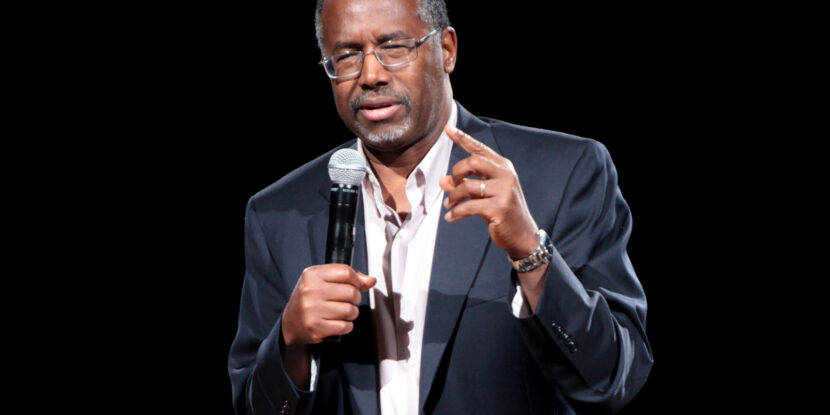
The Wall Street Journal interviewed Dr. Ben Carson on what abortion laws he would try to pass as President. Carson discussed his vision for an end to “abortion on demand” as well as his thoughts on drugs that could potentially be used as abortifacients. The full remarks are below:
WSJ: What legal restrictions on abortion do you support and would you try to enact as president?
Mr. Carson: I support the law that we have on the books but that doesn’t mean I wouldn’t try to change it.
WSJ: What would you try to change?
Mr. Carson: I would try to appoint people who believe in the culture of life and not the culture of death. But you do it legally and through the process that we have in place.
WSJ: So what legal restrictions would you try to change?
Mr. Carson: What would I like to see in an ideal world? I would like not to see abortion on demand.
WSJ: Does that mean no legal abortions at all?
Mr. Carson: I would not like to see any abortion on demand. I don’t in any way subscribe to the idea of killing babies. There’s just no way I can couch it that it should be done.
WSJ: Would you seek to eliminate access to drugs like RU-486 that can end a pregnancy after intercourse?
Mr. Carson: RU-486 and other progestins if you know what you’re doing, say in the case of a rape, can be, can prevent conception from occurring. But you have to know what you’re doing, you have to know how it’s used. You have to know what the period is, all those kinds of things are very important. Because RU-486 and progestins prevent ovulation … But if the eggs are already in the tube, then it doesn’t work. It can do it, but then it becomes an abortive drug and I don’t agree with that.
Carson also gave his most extensive answer to date on how he’d handle immigration as President, talking about the specifics of his proposed guest worker program but emphasizing that “nothing else matters” if the borders are not sealed first. You can read the exchange below:
WSJ: You’ve said as president you would create a path to citizenship for some of the undocumented immigrants in the United States. What would a Ben Carson path to citizenship look like?
Mr. Carson: First of all, and this must be emphasized as strongly as you can possibly emphasize, nothing else matters if you don’t seal the borders. You’ve got to seal the borders. And we’ve got the ability to do it, we just have not had the will to do it. In a Carson administration, the border would be sealed within a year. That solves a lot of our problems. I would turn off the spigot that dispenses the goodies, therefore we would not be attracting more people. So having a tough border and no attraction, we’re not going to be having more people come in.
Now to deal with the people who are here already, if they have a pristine record and they can demonstrate that they are providers of strength to our economy rather than sapping from our economy, then I would give them an opportunity to become guest workers. They have to be registered. And I would provide a hiatus of about six months. And if they don’t take advantage of that then they become illegal to be deported. They have to pay back taxes, they have to pay taxes going forward and they have to maintain pristine citizenship. That would allow them to be guest workers.
In terms of them becoming American citizens, they don’t get any special privileges, they don’t get to cut the line, they don’t get an expedited process. And we get to determine the criteria in which we would allow that to happen.
WSJ: What would the criteria be?
Mr. Carson: I think that’s a discussion that has to be had with Congress, which represents the people.
WSJ: So do you have a sense in your mind what that criteria ought to be?
Mr. Carson: You have to remember this is a country that is of, for and by the people. So if we’re going to allow people who have come in here illegally to become American citizens we have to have a consensus of the people of this country as to how that should be done and what the criteria are.
WSJ: But as the person who would is seeking to lead the country, what are your ideas as to what that criteria ought to be?
Mr. Carson: I would certainly encourage people to look at the lives that people have led and see whether they have led positive lives and are likely to be individuals who are going to strengthen our society rather than tear it down.
WSJ: Who would make that decision?
Mr. Carson: I think it’s pretty easy to decide if somebody is destructive or if somebody is constructive. You know, if they’re in trouble all the time, if they’re committing crimes, if they’re doing things to cause you to always be spending money on them, they’re not constructive.
WSJ: Is there a panel or an element in the government that would make that decision?
Mr. Carson: The criteria would be set with the immigration department.
WSJ: Border control? ICE? What is the immigration department?
Mr. Carson: There are many components to the immigration department. ICE is only one of them. The people who decide citizenship are another component.
Nick Arnold is a researcher for American Principles In Action.


